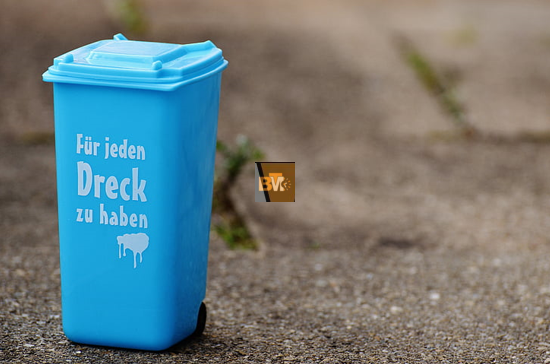Are you a loyalty in environmental advocates and practitioners? International students relocating to Sheffield can take advantage of sustainable living to reduce their environmental footprint and save money. As a student, the decisions you make – such as choosing your Sheffield student accommodation, resource usage, and transportation habits – can greatly impact the sustainability of your lifestyle. This guide will cover how to discover environmentally friendly lodging and incorporate sustainable practices that benefit both the environment and your finances.
Where to Live in Sheffield: Make A Sustainable Choice
The city and universities have taken steps towards sustainability, as numerous housing providers have integrated eco-friendly attributes into their properties. Take into account these eco-friendly features when searching for a place to stay. By opting for lodging with these characteristics, you are not just minimizing your ecological footprint but also probably cutting down on energy expenses.
Search for buildings that have up-to-date insulation, windows with double or triple glazing, and appliances that are energy-efficient. Insulation decreases the necessity for too much heating during the winter, while energy-efficient lighting, like LED bulbs, consumes less electricity compared to regular choices. Renewable energy sources like solar panels or wind turbines provide power for certain student housing options. Utilizing green energy decreases dependence on fossil fuels, therefore diminishing your carbon footprint. It is recommended to inquire with your landlord about the energy supplier’s use of renewable sources, even if your building does not produce its own power.
Recycling and Waste Management: Adequate waste management is necessary for every environmentally friendly lodging. Ensure that your residence has easily identifiable recycling containers for paper, plastic, glass, and organic materials. Numerous student halls and private accommodations in Sheffield provide easy access to recycling facilities to promote waste reduction among students.
Being close to campus can help decrease the need for using cars or public transportation, which is important for living sustainably. If feasible, opt for lodging near your school. Both the University of Sheffield and Sheffield Hallam University are located in conveniently connected areas, allowing students to easily walk or cycle to their classes. Residing close enough to walk reduces emissions, cuts transportation costs, and promotes physical activity.
Minimizing Energy Usage in a Household
Residing in a sustainable building is only the initial phase. After finding stable housing, it is important to develop behaviors that lower energy usage. Minor adjustments can make a big difference, particularly in the long run. This is how you can make sure your everyday routine stays energy-efficient:
- Switch off electronic devices that are not in use: Even when they are on standby mode, appliances such as TVs, chargers, and microwaves can consume energy. Develop a routine of turning off and disconnecting devices when they are not being used. This easy change can have a significant impact on your energy consumption throughout the year.
- Choose energy-saving appliances: If feasible, utilize energy-efficient appliances. As an example, LED light bulbs use less power than standard incandescent bulbs and have a much longer lifespan. If your place of stay lacks these items already, it could be beneficial to purchase some for your personal area.
- Smart Heating: Sheffield experiences cold winters, and heating is a major energy consumer in student accommodations. If your living situation permits, think about getting a programmable thermostat instead of running the heating all day. This allows you to efficiently heat your home only when necessary. Maintain warmth in your room by shutting doors and windows tightly and utilizing blankets or thermal curtains to preserve heat.
- Save Water and Energy Together: Simple lifestyle changes can help conserve both resources. For instance, if you’re using hot water, only heat up the amount required. To conserve water, limit running water while washing dishes and opt for heating small amounts of water with a kettle rather than a stove.
Conserving Water in Your Everyday Activities
Sheffield values eco-friendliness, and students can have a positive impact through water conservation. Being conscious of your water usage due to its growing scarcity globally can have a significant and long-term effect.
- Repair leaks right away: Dripping faucets and malfunctioning plumbing can result in wasted liters of water daily. It is crucial for tenants to promptly inform their landlord about any leaks. The majority of landlords or housing providers in Sheffield will promptly fix leaks, as it is in their mutual interest to save water.
- Restrict shower duration: Extended showers are a major source of water wastage in student accommodations. Cutting down on the duration of your daily shower, even by just a few minutes, can lead to substantial water savings throughout the year. Another easy fix is to install a water-saving showerhead, which decreases the amount of water used during showers while maintaining the shower’s quality.
- Environmentally conscious laundry: Make sure to wash full loads and try using cold water for washing clothes. Washing clothes in cold water conserves energy and reduces long-term damage to fabrics. Another way to save energy is by hanging your clothes to dry outside, especially if you have access to outdoor space, instead of using a dryer.

Eco-friendly Transportation Options
Living in Sheffield gives you access to several sustainable transport options, allowing you to reduce your reliance on cars. You can travel with these green ways to explore the city:
- Walk or Cycle: Many students choose to walk or cycle to campus. Sheffield’s compact city layout makes it easy to get around on foot or by bike. Cycling is not only eco-friendly but also an affordable and healthy transport option. The city is investing in improved cycling infrastructure, and bike-sharing programs provide affordable options for students without their own bikes.
- Use Public Transport: Sheffield has an extensive bus and tram network. By using public transport, you reduce the need for personal vehicles, thereby lowering emissions. The city’s buses and trams are reliable and affordable, and students can benefit from discounted fares with a travel pass.
- Car Sharing and Rental Schemes: For students who need a car for occasional trips, Sheffield offers car-sharing schemes. These services allow you to rent a vehicle for short periods, sharing the cost and environmental impact with others.
Conclusion
Living sustainably in Sheffield is both affordable and easily achievable, making a significant impact. What we called in this article, these actions not only decrease your carbon footprint but also coincide with Sheffield’s larger dedication to environmental accountability. As a student, your behavior can motivate others and contribute to creating a more eco-friendly, enduring community. Embrace these options while you’re here, and reap the rewards of a sustainable lifestyle in Sheffield.



Leave a Reply